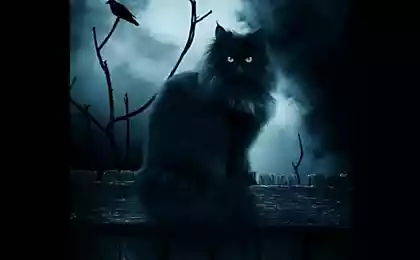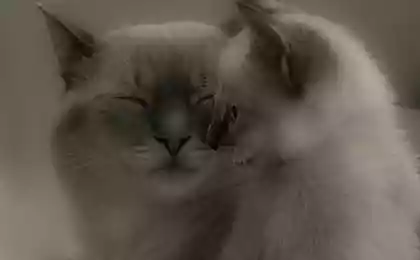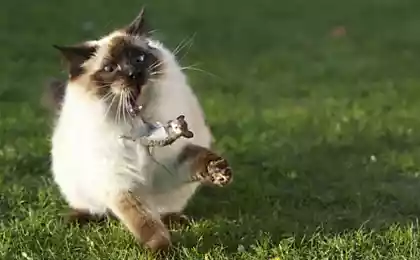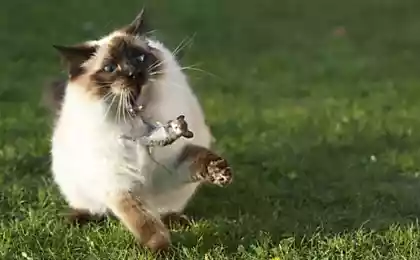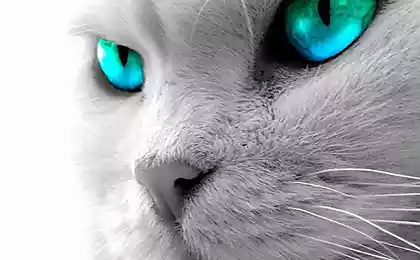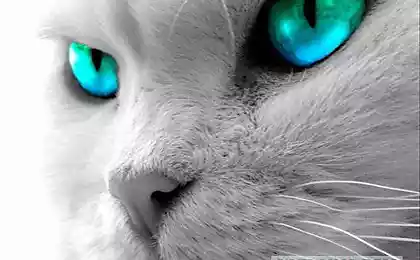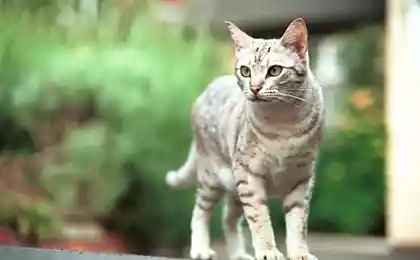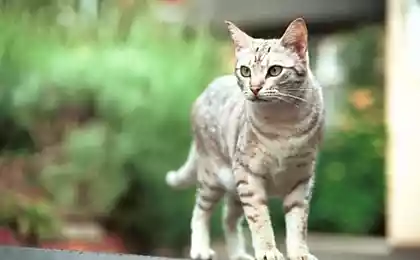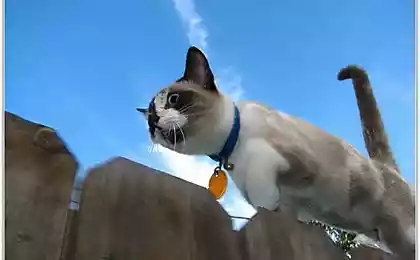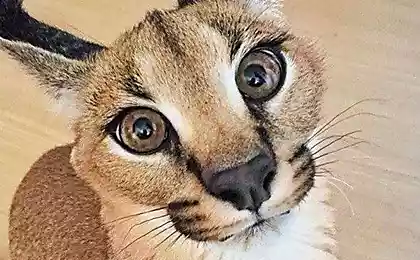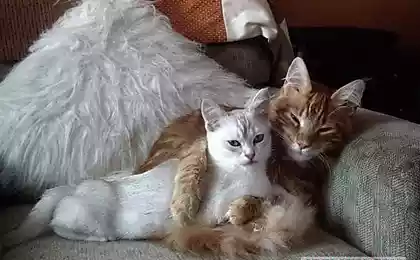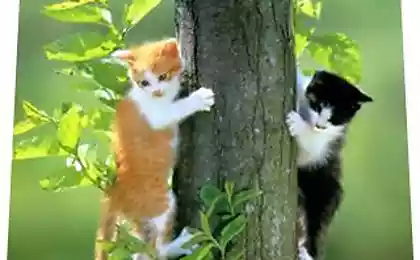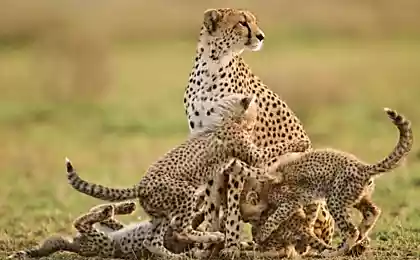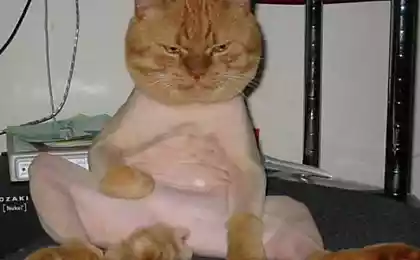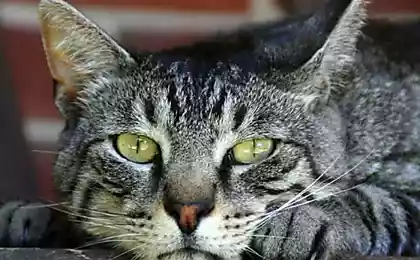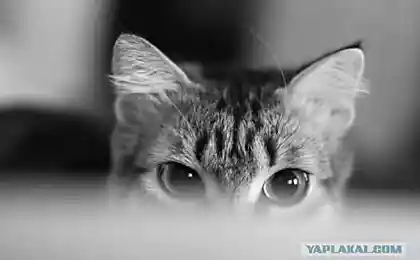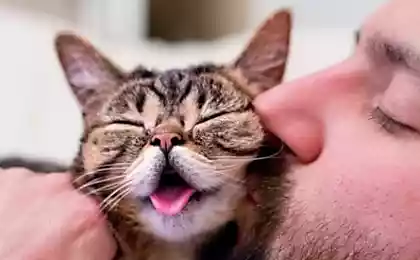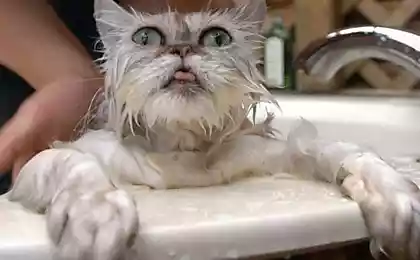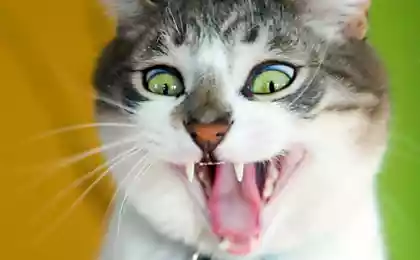514
How cats perceive their owners?
Whom you would not consider my cat, he does not share your feelings of kinship. In his eyes you are just a very large cat with which he shares his safe territory.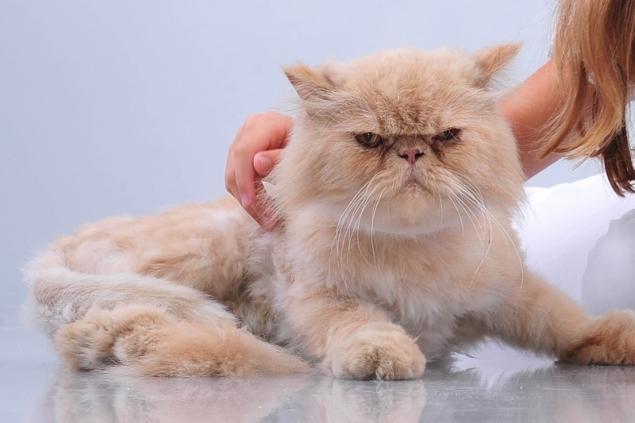
If you have a puppy, you might consider yourself his mother who feeds him, takes care of, entertains and licking the fur (still, probably not literally). Oh, and, of course, you speak like a child, praise or gently chide yourself for torn curtain or brought into the house a dead mouse. All these are manifestations of our anthropomorphism, that is, the tendency to stubbornly give animals human qualities. The cat looks far more prosaic. He just sees you as "huge and not a hostile cat," says a prominent biologist, Director of the Institute of anthrozoology in Bristol John Bradshaw (John Bradshaw).
Bradshaw, educause the behavior of domesticated animals for over 30 years, gives a curious explanation of the behavior of cats in the presence of a person. First, he notes that cats are still not entirely domesticated. They are much closer to their wild ancestors than dogs to his own, and not included in the life of the owners like dogs. One reason is that when breeding dogs the man was very important to teach them to understand what is required of them (e.g., while hunting). Cats also expect mainly one thing: that they are hard hunting, guarding the house from rats and mice. By the way, cats almost never specifically fed, they were "self-sufficient". Special understanding with the owner here and not required. They lived near the person of his parallel life. And the need for emotional relationships, in "communication" with the cats originated in humans relatively recently. In addition, according to statistics cited Bradshaw, 85% of cats mate with street and wild cats, which all kind is still relatively wild. Their interaction with the owner – not so much a learned behavior as a manifestation of instinct.
When the cat "trampling" paws on us or the sofa, he moves, with which kittens stimulate milk production in the mother. When cats RUB against our hands and legs, or to expose his head, inviting us to scratch them behind the ear, this is the most obvious way to show your location to people – precisely because they demonstrate his brethren. Leaving the house of the dead mice, they are not trying to "feed" of the home, and just bring the prey to a safe place, then to eat. Although after trying it on the tooth, they suddenly realize that the food that they give people much better. Not surprisingly, if you look at city rats, ironically, Bradshaw.
Do not expect cats equally strong love and attachment, which we automatically receive from dogs, warns Bradshaw. It would be naive to expect that cats are as happy to answer our warm feelings towards them. Some Yes but most no. In any case, we are not the center of their world. "They can think about the neighbour's cat watching birds outside the window, not paying attention to the people present. What a disappointment for the host: "Oh, he loves me not!" Do not rush upset: it is possible that like – in General. He just lives his and not your life."
So next time you call your cat "baby," or will it be reproach for pranks, remember – it you simply pretty good neighbor-relatives only, for some inexplicable reason, a huge size.
And finally – keep in mind that the presence of these cats on its legal territory the cat is not always a joy, and sometimes it can be a source of serious stress. On the basis of the rejection of the "roommate" may even develop dermatitis or cystitis. "You could probably easily find a common language with a neighbor. In cats it is not, it is much more difficult to coexist with their own kind, says Bradshaw. – The fact that the two cats shared host, does not mean that these two would get along." published
P. S. And remember, only by changing their consumption — together we change the world! ©
Source: dom.goodhouse.com.ua

If you have a puppy, you might consider yourself his mother who feeds him, takes care of, entertains and licking the fur (still, probably not literally). Oh, and, of course, you speak like a child, praise or gently chide yourself for torn curtain or brought into the house a dead mouse. All these are manifestations of our anthropomorphism, that is, the tendency to stubbornly give animals human qualities. The cat looks far more prosaic. He just sees you as "huge and not a hostile cat," says a prominent biologist, Director of the Institute of anthrozoology in Bristol John Bradshaw (John Bradshaw).
Bradshaw, educause the behavior of domesticated animals for over 30 years, gives a curious explanation of the behavior of cats in the presence of a person. First, he notes that cats are still not entirely domesticated. They are much closer to their wild ancestors than dogs to his own, and not included in the life of the owners like dogs. One reason is that when breeding dogs the man was very important to teach them to understand what is required of them (e.g., while hunting). Cats also expect mainly one thing: that they are hard hunting, guarding the house from rats and mice. By the way, cats almost never specifically fed, they were "self-sufficient". Special understanding with the owner here and not required. They lived near the person of his parallel life. And the need for emotional relationships, in "communication" with the cats originated in humans relatively recently. In addition, according to statistics cited Bradshaw, 85% of cats mate with street and wild cats, which all kind is still relatively wild. Their interaction with the owner – not so much a learned behavior as a manifestation of instinct.
When the cat "trampling" paws on us or the sofa, he moves, with which kittens stimulate milk production in the mother. When cats RUB against our hands and legs, or to expose his head, inviting us to scratch them behind the ear, this is the most obvious way to show your location to people – precisely because they demonstrate his brethren. Leaving the house of the dead mice, they are not trying to "feed" of the home, and just bring the prey to a safe place, then to eat. Although after trying it on the tooth, they suddenly realize that the food that they give people much better. Not surprisingly, if you look at city rats, ironically, Bradshaw.
Do not expect cats equally strong love and attachment, which we automatically receive from dogs, warns Bradshaw. It would be naive to expect that cats are as happy to answer our warm feelings towards them. Some Yes but most no. In any case, we are not the center of their world. "They can think about the neighbour's cat watching birds outside the window, not paying attention to the people present. What a disappointment for the host: "Oh, he loves me not!" Do not rush upset: it is possible that like – in General. He just lives his and not your life."
So next time you call your cat "baby," or will it be reproach for pranks, remember – it you simply pretty good neighbor-relatives only, for some inexplicable reason, a huge size.
And finally – keep in mind that the presence of these cats on its legal territory the cat is not always a joy, and sometimes it can be a source of serious stress. On the basis of the rejection of the "roommate" may even develop dermatitis or cystitis. "You could probably easily find a common language with a neighbor. In cats it is not, it is much more difficult to coexist with their own kind, says Bradshaw. – The fact that the two cats shared host, does not mean that these two would get along." published
P. S. And remember, only by changing their consumption — together we change the world! ©
Source: dom.goodhouse.com.ua
